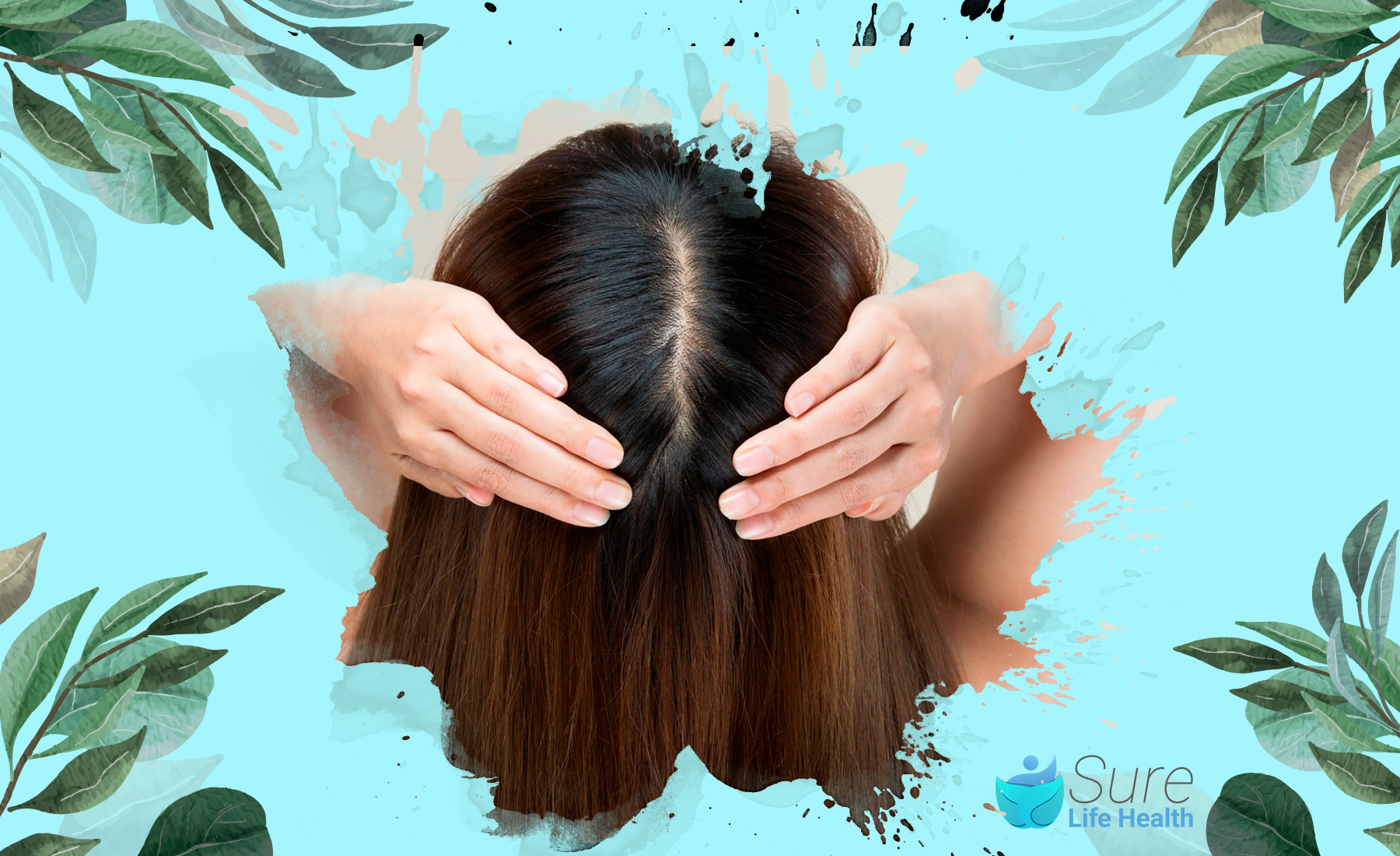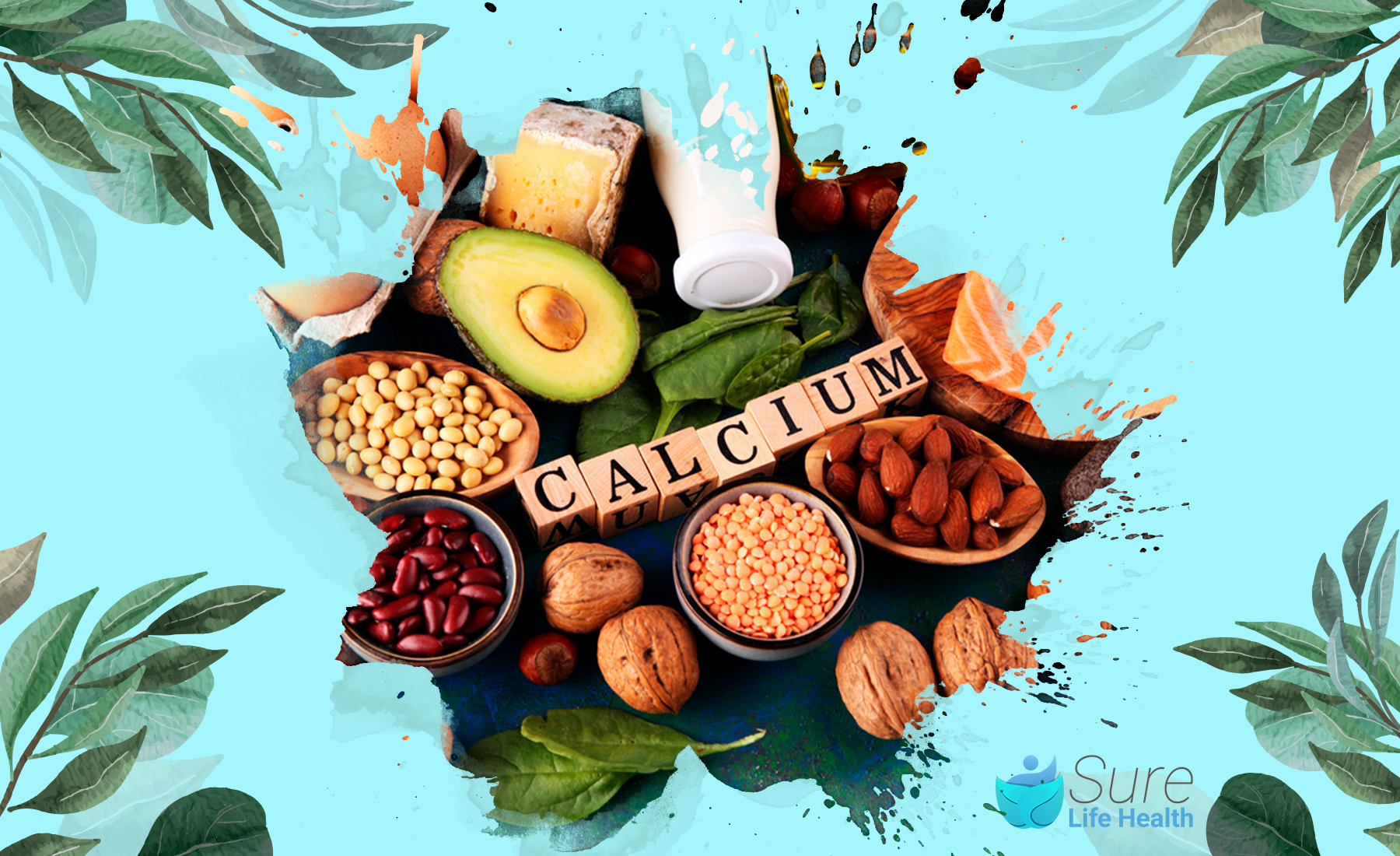Hair loss affects many individuals worldwide, and while various factors contribute to this issue, a commonly overlooked cause is calcium deficiency. This essential mineral is crucial for maintaining strong, healthy hair.
In this article, we will explore the question: “Is calcium good for hair?” We’ll examine the connection between calcium deficiency and hair loss, helping individuals take proactive steps to maintain vibrant, lustrous hair.
Benefits of Calcium for Hair Health
Calcium offers several benefits for hair health, making it an essential nutrient for maintaining not just bone health but also the vitality of your hair. Here are some of the key benefits of calcium for hair health:
Protecting Hair from Damage
Calcium is armed with antioxidant properties that combat free radicals, shielding your hair from environmental stressors.
This crucial mineral helps maintain your hair’s natural luster and vibrancy.
Improving Scalp Health
Calcium plays a pivotal role in ensuring a healthy scalp. It aids in regulating sebum production, which prevents dryness and itching, and fortifies the scalp’s natural defense against pollutants and harsh elements.

Stimulating Hair Growth
By balancing hormone levels, calcium actively encourages new hair growth. It improves the function of hair follicles, which leads to quicker and denser hair growth.
Reducing Hair Loss
Maintaining adequate calcium levels is essential for preventing hormonal disturbances that can cause excessive hair shedding. This promotes better hair retention and density.
Strengthening Hair
As a vital component of hair structure, calcium contributes to the development of stronger, more resilient hair fibers. This helps in preventing issues like split ends and brittleness.

The Link Between Calcium Deficiency and Hair Problems
Calcium is indispensable for numerous vital functions within the body. Beyond its well-known role in fortifying bones and teeth, calcium is crucial for fostering healthy hair growth. By facilitating the transportation of nutrients to hair follicles, it ensures they are adequately nourished, which is essential for robust hair.
A deficiency in calcium can lead to various health problems, notably affecting hair health. Calcium is essential not only for hormone and enzyme activities, including the secretion of biotin enzymes and androgen hormones that promote healthy hair growth but also for enhancing the absorption of iron, a mineral closely linked to hair vitality.
Given its significant benefits, incorporating calcium-rich foods and supplements into your diet is vital for maintaining, growing, and restoring healthy hair.
Recognizing Hair Loss Due to Calcium Deficiency
Calcium deficiency, or hypocalcemia, can manifest in severe ways, including cataracts, dental issues, and osteoporosis. But its impact doesn’t stop there; it also affects your hair, nails, and skin. When your body lacks enough calcium, your hair is often one of the first areas to suffer.
If you’re experiencing unusually rough, coarse, or dry hair, it might be a signal of calcium deficiency. Calcium, along with other minerals, plays a critical role in keeping the scalp hydrated and supporting healthy hair. A shortfall in calcium levels can lead to significant hair health issues, including conditions like alopecia areata, where hair loss occurs in patches.
Foods That Help Prevent Hair Loss Caused by Calcium Deficiency
To counteract hair loss due to calcium deficiency, incorporating calcium-rich foods into your diet is a key strategy. While supplements are an option, natural food sources often provide a balanced intake along with other beneficial nutrients. Here are some of the top foods rich in calcium:
- Dairy Products: Milk, cheese, and yogurt are traditional favorites for calcium.
- Green Vegetables: Broccoli and spinach offer a plant-based calcium boost.
- Beans: A variety of beans, such as black beans and white beans, are good sources of calcium.
- Nuts and Seeds: Almonds and sesame seeds are not only rich in calcium but also in healthy fats and proteins.
- Soy Products: Tofu and soy milk are excellent for those following a vegan or lactose-intolerant diet.
If you are considering taking a calcium supplement to increase your intake, pay attention to the dosage when supplementing. Taking too much calcium can lead to complications such as kidney stones and cardiovascular problems.

Avoiding Calcium Deficiency
To prevent calcium deficiency and promote overall health, including that of your hair, follow these practical tips:
- Eat Foods Rich in Calcium: Regularly include dairy products, leafy vegetables, nuts, seeds, and calcium-fortified foods in your diet. These not only bolster bone health but also enhance the strength and quality of your hair.
- Nutritional Supplements: If your diet falls short, consider calcium supplements. Always consult a nutritionist to determine the appropriate dosage and avoid overconsumption.
- Ensure Sufficient Vitamin D Levels: Vitamin D is essential for effective calcium absorption. Ensure you get enough through sunlight exposure, dietary sources, or supplements.
- Limit Caffeine and Soft Drink Intake: Caffeine and soft drinks can interfere with calcium absorption. Enjoy these beverages in moderation to prevent potential negative effects on your calcium levels.
- Maintain Gut Health: A robust digestive system enhances nutrient absorption. Incorporate probiotics and high-fiber foods into your diet to support gut health and improve calcium uptake.
- Limit Alcohol and Smoking: Both smoking and excessive alcohol consumption can impair calcium absorption and bone health. Reducing or quitting these habits is beneficial.
- Monitor Medications: Some medications might hinder calcium absorption. If you’re on medication, discuss with your doctor how best to manage your calcium levels.
- Conduct Regular Health Examinations: Regular check-ups can detect and address nutritional deficiencies early, helping you maintain optimal health and prevent issues related to calcium deficiency.
Conclusion
Is calcium good for hair? Absolutely. Harnessing the power of calcium can significantly contribute to combating hair loss. Foods rich in calcium provide essential nutrients directly to hair follicles, nourishing them from the inside out.
Maintain a balanced diet, gentle hair care, and effective stress management to achieve shiny, healthy hair. With ways to address calcium deficiency, you can restore soft, smooth, and strong hair.
Don’t forget to explore more informative and helpful blogs from Sure Life Health, where we continue to uncover the best in natural health care.
Professor Gaye Cunnane, PhD, MB, FRCPI
As the Director of Health and Wellbeing at RCPI, Professor Gaye Cunnane is at the helm of initiatives aimed at enhancing the health and well-being of RCPI Trainers and Trainees. Her role extends beyond administration; she is also a respected clinical professor of rheumatology and a consultant rheumatologist at Trinity College Dublin (TCD) and St James’s Hospital. Prof. Cunnane’s medical journey began at TCD, where she graduated from medical school, and her path has been marked by both clinical and academic excellence.
After completing her basic clinical training in medicine, she embarked on PhD studies at University College Dublin and St Vincent’s University Hospital. Her research during this period was focused on prognostic markers in early inflammatory arthritis, a project that saw her collaborating with esteemed universities across Europe, including in Switzerland, The Netherlands, the UK, and Sweden.
Prof. Cunnane’s career took her to the University of California, San Francisco, where she spent three years delving into research on new treatments for lupus. Her academic prowess led her to the University of Leeds in 2001 as a senior lecturer, before returning to Ireland in 2003 to assume her current roles. She has also served as the National Specialty Director for Rheumatology training in Ireland, Programme Director for Basic Specialist Training with RCPI, and as a past President of the Irish Society for Rheumatology.
PUBLISHED ARTICLES
“Rheumatic disease differentiation using immunoglobulin G sugar printing by high-density electrophoresis”: Published in The Journal of Rheumatology, this study reflects her in-depth investigation into rheumatic diseases.
“Benefits of exercise in patients with rheumatoid arthritis: a randomized controlled trial”: This research work, highlighting the positive impact of exercise on rheumatoid arthritis, underscores Prof. Cunnane’s dedication to practical, patient-centered research.
Additionally, Prof. Cunnane has made notable contributions to the Annals of the Rheumatic Diseases, discussing early referral, diagnosis, and treatment of rheumatoid arthritis. She has also been involved in a study on the NCBI platform investigating exercise benefits in rheumatoid arthritis patients.
Professor Gaye Cunnane’s career is a testament to her commitment to improving patient outcomes in rheumatology through rigorous research, clinical excellence, and dedicated teaching. Her work continues to influence the field of rheumatology, both in Ireland and internationally.

